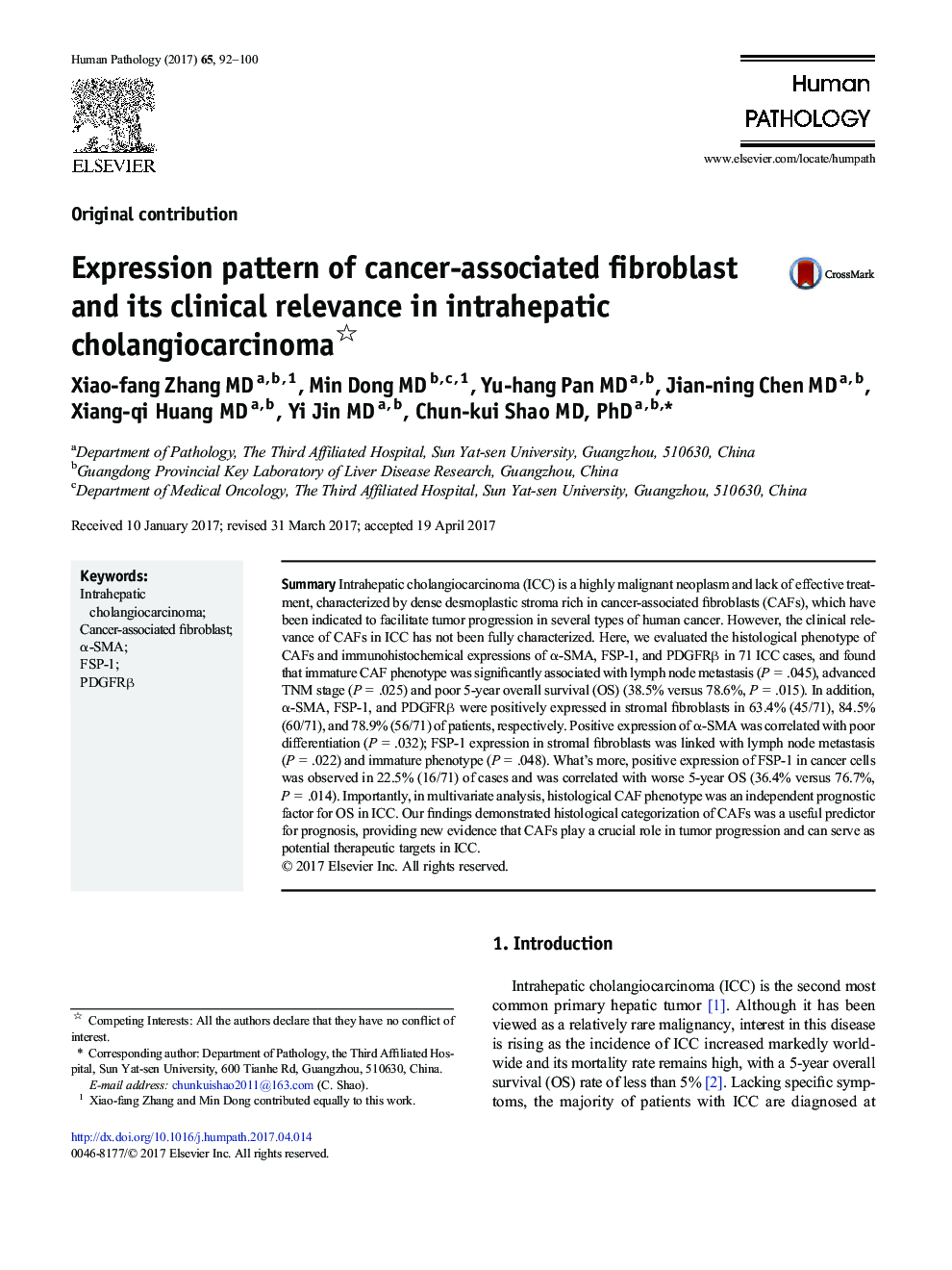| Article ID | Journal | Published Year | Pages | File Type |
|---|---|---|---|---|
| 5716319 | Human Pathology | 2017 | 9 Pages |
â¢Histological CAF phenotype was an independent prognostic factor for OS in ICC.â¢FSP-1 expression in cancer cells was correlated with worse 5-year OS in ICC.â¢CAFs can be potential therapeutic targets in ICC.
SummaryIntrahepatic cholangiocarcinoma (ICC) is a highly malignant neoplasm and lack of effective treatment, characterized by dense desmoplastic stroma rich in cancer-associated fibroblasts (CAFs), which have been indicated to facilitate tumor progression in several types of human cancer. However, the clinical relevance of CAFs in ICC has not been fully characterized. Here, we evaluated the histological phenotype of CAFs and immunohistochemical expressions of α-SMA, FSP-1, and PDGFRβ in 71 ICC cases, and found that immature CAF phenotype was significantly associated with lymph node metastasis (P = .045), advanced TNM stage (P = .025) and poor 5-year overall survival (OS) (38.5% versus 78.6%, P = .015). In addition, α-SMA, FSP-1, and PDGFRβ were positively expressed in stromal fibroblasts in 63.4% (45/71), 84.5% (60/71), and 78.9% (56/71) of patients, respectively. Positive expression of α-SMA was correlated with poor differentiation (P = .032); FSP-1 expression in stromal fibroblasts was linked with lymph node metastasis (P = .022) and immature phenotype (P = .048). What's more, positive expression of FSP-1 in cancer cells was observed in 22.5% (16/71) of cases and was correlated with worse 5-year OS (36.4% versus 76.7%, P = .014). Importantly, in multivariate analysis, histological CAF phenotype was an independent prognostic factor for OS in ICC. Our findings demonstrated histological categorization of CAFs was a useful predictor for prognosis, providing new evidence that CAFs play a crucial role in tumor progression and can serve as potential therapeutic targets in ICC.
